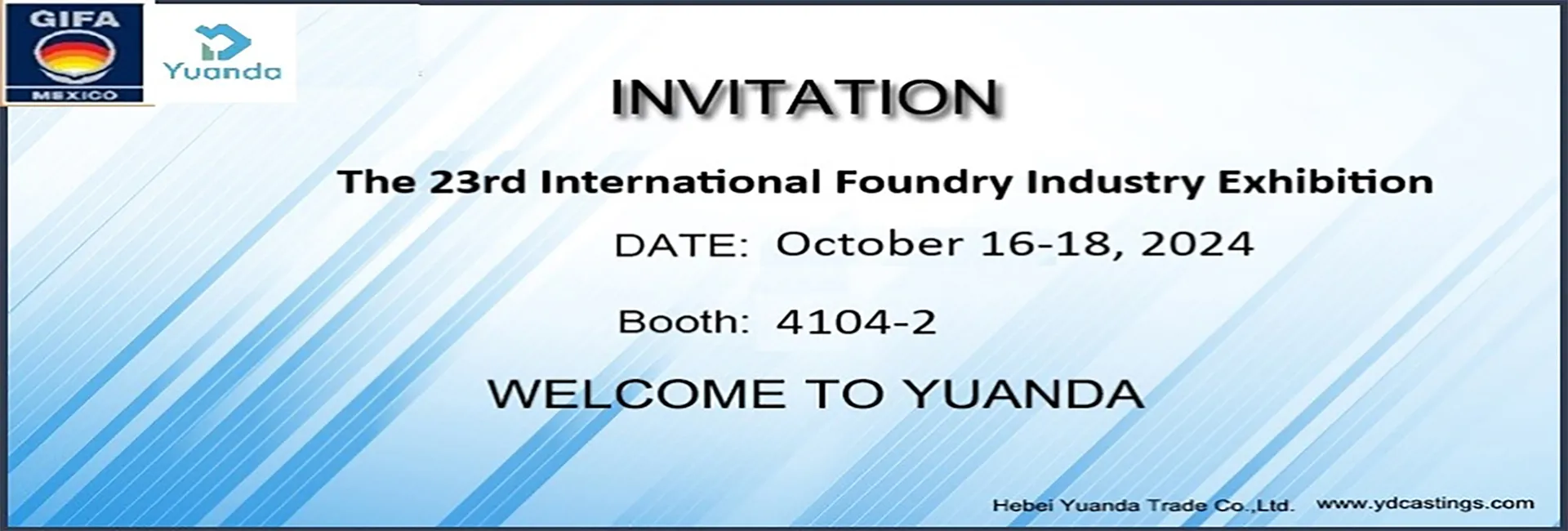Mobile:+86-311-808-126-83
Email:info@ydcastings.com
English
custom casting
Custom Casting Revolutionizing Design and Production
In recent years, custom casting has emerged as a pivotal innovation in the fields of manufacturing and design. This process, which allows for the creation of tailored components and products, has transformed the landscape of various industries, including automotive, aerospace, art, and architecture. With advancements in technology and an increasing demand for personalized products, custom casting has become a game-changer that offers numerous benefits.
At its core, custom casting is a manufacturing process that involves pouring molten material into a mold to create a specific shape or form. This method can employ a variety of materials, including metals, plastics, and ceramics, depending on the requirements of the final product. The ability to create intricate and complex designs not only allows for greater flexibility in product development but also enables designers to challenge conventional forms and aesthetics.
One of the primary advantages of custom casting is the high degree of customization it offers. In a world where consumers increasingly seek products that reflect their individuality, custom casting provides the perfect solution. Whether it’s a unique piece of jewelry, a custom automotive part, or a specialized component for an aircraft, manufacturers can produce items that cater to personal specifications and preferences. This level of personalization not only enhances customer satisfaction but also fosters brand loyalty.
Moreover, custom casting can lead to significant cost savings, particularly for businesses seeking to reduce waste and optimize resource usage. Traditional manufacturing processes often involve excessive material waste due to standardization in production. In contrast, custom casting facilitates the design of products that use only the necessary amount of material, minimizing waste and the associated costs. Additionally, as orders can be produced on-demand, companies can better manage inventory levels and reduce overhead.
custom casting

The technological advancements associated with custom casting are noteworthy as well. Computer-aided design (CAD) software and 3D printing technologies have revolutionized the casting process. Designers can now create intricate molds with precision, allowing for the production of highly detailed components that were previously unattainable. Furthermore, these technologies enable rapid prototyping, allowing businesses to test and iterate their designs more efficiently, ultimately speeding up the time-to-market for new products.
In the artistic realm, custom casting has opened up new avenues for artists and sculptors. Artists can realize their visions with greater accuracy and detail, crafting pieces that resonate deeply with their audience. The ability to create one-of-a-kind pieces or limited runs adds value to artistic work and allows for greater expression.
Despite the numerous advantages, custom casting also presents challenges. The initial investment in mold creation and the potential for longer lead times can deter some manufacturers. However, as technologies continue to improve and become more accessible, these barriers are gradually decreasing.
In conclusion, custom casting is reshaping the manufacturing landscape, offering unparalleled opportunities for customization, cost efficiency, and artistic expression. As industries adapt to consumer demands for personalized products and innovative designs, custom casting is poised to remain a crucial element in the future of production, paving the way for creativity and innovation across various sectors.
-
Materials Used in Manufacturing Cap End Pipe FittingsNewsNov.24,2025
-
Material Properties of CF8M CastingNewsNov.24,2025
-
How to Inspect Pump Cap Ends for DamageNewsNov.21,2025
-
Backward Curved Impeller – Efficient Airflow Solutions for Industry | YD CastingsNewsNov.21,2025
-
Automobile Water Pump - Efficient, Quiet, Durable & ElectricNewsNov.21,2025
-
Impeller for Pumps – High-Efficiency, Durable, OEM-ReadyNewsNov.21,2025











